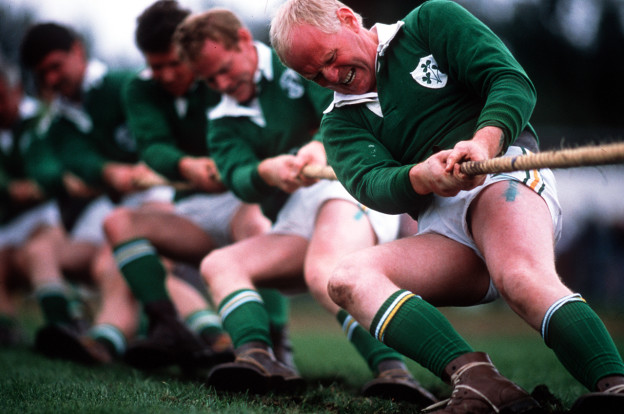It is natural that in times of war the voices of moderation are stifled. A threat to the health of the community awakens a deep internal defensive stance while the scrutiny of one’s peers only reinforces this attitude. For over a century, the Israelis and Palestinians have been at war with one another, further entrenching the feelings of animosity with every passing day. In recent years, any aggressive act carries with it the potential to transmute these latent attitudes into bombs being dropped on one another. After enough blood is spilled the tensions settle with the dust, and each side limps away while triumphantly raising their arms.
The aftermath of the destruction and misery seems to merely entail the resetting of the optimism meter to zero and the initiation of the countdown until the next battle. However, this period following an upsurge in violence may contain the greatest conditions for progress to take effect. While some lose all hope and use the current battle as evidence that there can only be more battles, others become more desirous of a solution to the conflict. The voice of moderation prevails, for it is sweeter to the ears than the blaring of sirens and frenzy of newscasters. The consequences of listening to radicals are still being felt and so the willingness to compromise increases.
Last week, UCLA’s Younes and Soraya Nazarian Center for Israel Studies hosted a panel discussion titled “The Hamas-Israel Conflict in Context: What’s Next for Israel, the Palestinians, and the Region?” The panel was composed entirely of self-identified moderates: two Israelis, Uriel Abulof, and Asher Susser, and a Palestinian, Hussein Ibish. Because the three are moderates, and because the talk was framed as a panel discussion rather than a debate, there was not much spectacle to the event. Rather It was intellectually stimulating, as deciphering the various positions and points of contention required utmost attention.
The three panelists agreed that there is a deadlock and little hope of solving the conflict, despite the disastrous consequences of keeping things as they stand. However, each had a different lens of viewing the situation, which resulted in different explanations for why this deadlock exists, and what possible steps are towards overcoming it.
Asher Susser views both Israelis and Palestinians as rational, self-interested individuals. Because they are rational, they have various tactics for achieving their objectives. In perhaps the most optimistic portion of the panel, Susser argued that both parties are beginning to recognize the limitations of military actions, which may lead to a cessation of militaristic upsurges in the short term. However, the larger conflict will continue, as both groups are comprised of self-interested individuals, each of which desires and deserves a state of its own but is unwilling to help the other achieve its objective at the expense of its own. In order to break this impasse, Israel, as the stronger party, must make greater compromises and prove it believes in a two-state solution.
Hussein Ibish views the conflict as not between two individuals, but rather three movements: Israel, the Palestinian Authority and Hamas. Each of these movements was created at a certain time with certain objectives, and is trapped in its own political paradigm. The movements no longer have agency, and are merely continuing to do what they must do according to the rules determined by the movement. Since these three movements are at odds with each other, if none of them have the ability to change their courses then there is no way of moving forward. Unilateral action on the part of Israel would not solve anything, and anyways would not occur because it would be at odds with the objectives of Israel. Rather, what it must do is assist the PA so that it appears to be more of an actor than Hamas.
Uriel Abulof disagrees with both Susser and Ibish in that he does not see the conflict as occurring between ethnonational symmetrical parties, but rather between competing moral world views. The Jews are fighting for their survival and view the conflict as an existential threat, even though this may not still be the case. The Palestinians are fighting against colonialism, even though this may never have been the case. There is no solution to the conflict because each side is stuck viewing reality from its own perspective, and any compromise would jeopardize its entire moral system. Any steps towards peace would need to take these perspectives into account and help both communities with attaining a more common sense of the reality of the situation.
In Lewis Carroll’s novel Through the Looking-Glass, the protagonist Alice discovers that running does not result in any changes in her position. She questions the red chess Queen that she has met:
“Well, in our country,” said Alice, still panting a little, “you’d generally get to somewhere else — if you run very fast for a long time, as we’ve been doing.”
“A slow sort of country!” said the Queen. “Now, here, you see, it takes all the running you can do, to keep in the same place. If you want to get somewhere else, you must run at least twice as fast as that!”
When it comes to the Israel-Palestine conflict, it seems that we are in an even worse situation, since we have been running for a very long time but are in a worse position than before. Perhaps in our situation, the solution is not to run twice as fast but to stop running altogether. We must learn to walk at the same pace as those we consider our greatest enemy. Only then may we lay down our arms and walk hand in hand, consoling each other for the wounds we have inflicted.

